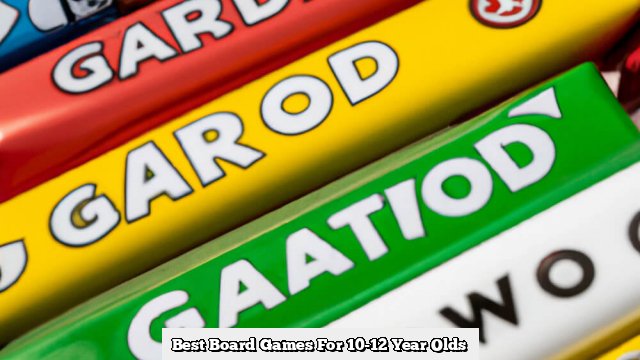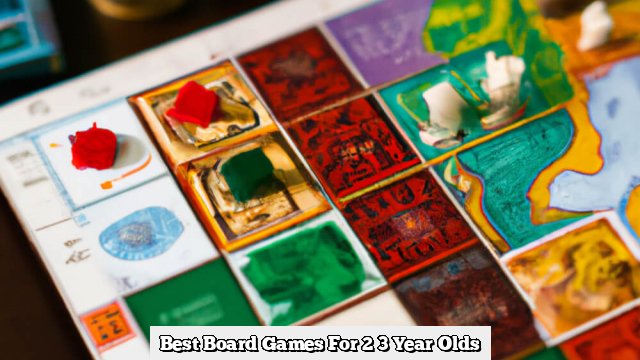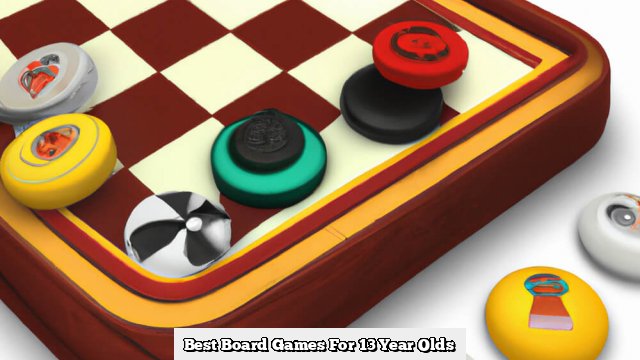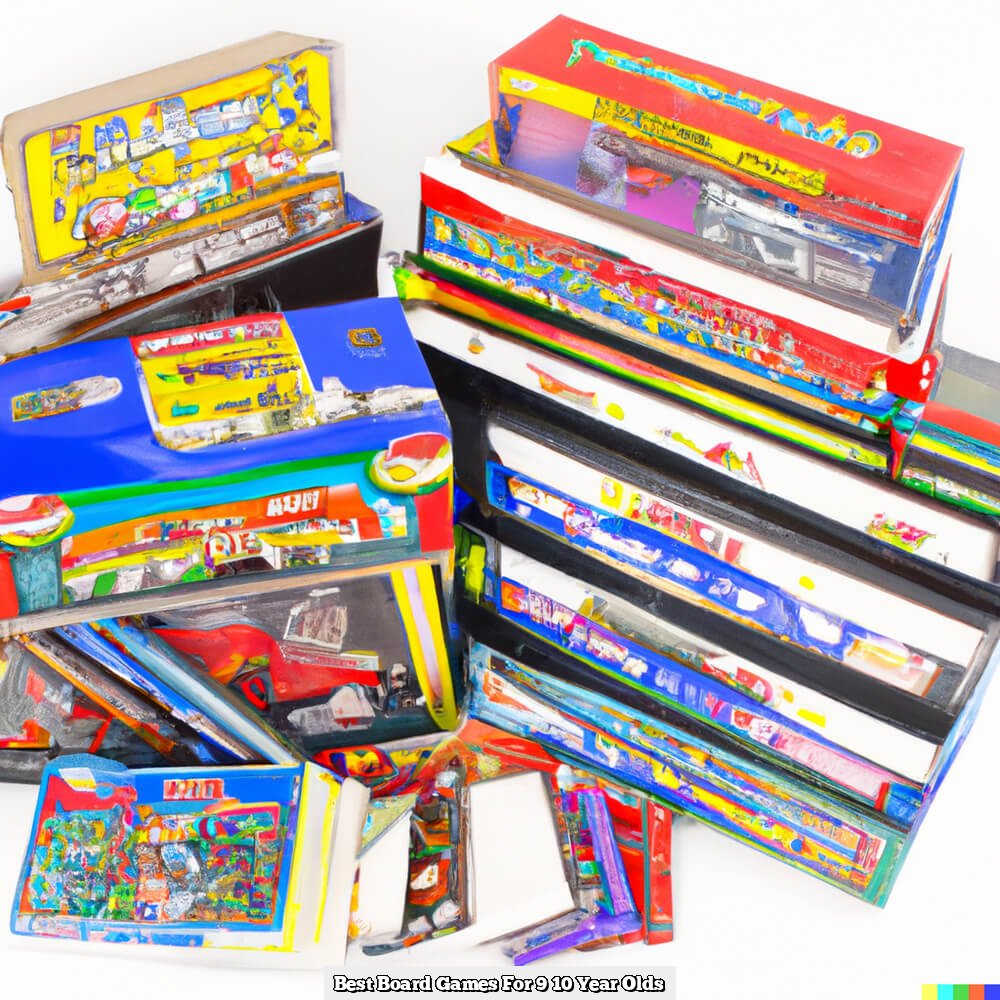Introduction
Board games are an essential activity for children ages 3-5. They can be used to foster creativity, encourage learning and help develop important skills while still providing an enjoyable and stimulating experience. Playing board games helps teach children problem-solving, concentration and how to take turns. It can also help build a child’s vocabulary, math skills and memory capacity. Board games offer tactile experiences that bring a different dimension to play, leading to improved hand-eye coordination and motor skills development.
The imaginative world of board games brings out the players’ curiosity, ambition, enthusiasm for competition as well as kindness and co-operation towards one another in turn based gameplay. The social aspect of board gaming provides children with the opportunity to engage in conversation through shared experiences. These conversations often start up topics of discussion like empathy, sharing and learning from one another ” although care should be taken not to introduce conflict within the game itself (which might result in a loss of interest or enjoyment). Board games also provide valuable opportunities for teaching about different cultures, history or science depending on the game chosen by parents or guardians.
In conclusion, playing board games with 3-5 year olds is beneficial in many ways that enhances learning development while they remain an enjoyable way to spend time together as a family or friends.
Benefits of Board Games for 3-5 Year Olds
Board games can be a great way to help 3-5 year olds develop in multiple areas of life. Board games stimulate development in the areas of cognitive skills, social skills, problem-solving, fine motor skills, and creative/imaginative play.
In terms of cognitive development, board games help 3-5 year olds learn basic concepts such as colors, shapes, numbers and letters. The games also encourage strategic thinking and help children learn logical thinking as they put together pieces or do math problems. By playing board games in a group setting, kids can also begin to understand rules such as winning or losing gracefully or taking turns sharing resources. This helps them build essential communication and teamwork skills that will benefit them through their school careers and beyond.
Playing board games also helps improve fine motor skills by requiring precise movements such as twisting dials or manipulating game pieces with finger dexterity. For young children learning how to draw shapes properly with pens and pencils is enhanced when they play board games where tracing circles is required for game play. Creative imaginative play comes out when applying characters and stories to the actions being taken on the game board which encourages invention of story telling elements within a constrained environment”which helps young minds learn limits within imaginary situations.
Plus parents should not overlook that fact that playing board games allows for shared quality family time too where conversations occur amongst family members in fun settings fostering strong connection between all participants involved which may erode some negative emotions siblings have for one another or subjects which are challenging for those involved without it possibly becoming boring like one might expect from routine parental guidance dialogue styles–such as the dinner tabl jokes work well here!
Popular Types of Board Games
1. Memory Games: Popular memory games for 3-5 year olds include Spot It!, Disney Matching Pairs, Animal ABC Match and True or False.
2. Construction and Stone-Stacking Games: Popular stone-stacking games for 3-5 year olds include Game of Stones (a game of strategy where players must stack wooden stones in a tower), Farkle (where players must use a variety of building blocks to create shapes), and Stack & Drop (a game of color recognition and pattern matching).
3. Visual Recognition Games: Popular visual recognition games for this age group include Pet Parade, Chocolate Fix, Color Cubes and Foxtrot.
4. Logic Puzzles: Popular logic puzzles for 3-5 year olds include Angry Birds Memory Puzzle Game, Think Fun Rush Hour Jr., STEM Blox Roller Coaster Building Set, Magformers Shapes & Patterns Animal Cube Puzzle, Brainy Rain Bug Match and LogixTree Spelling Sorting Puzzle Game.
5. Cooperative Games: Popular cooperative game options for 3-5 year olds include Elephant’s Journey (where players must help the elephant find his family), Grab It! Pop Up Party (where teams have to work together to build crazy structures with colorful sticks), Emergency Kraken! (an underwater adventure where players must work together to save the Kraken from danger) and Farmageddon (where players must collaborate to care for their farm animals).
Choosing Board Games
When choosing Board Games for 3-5 year olds, it’s important to consider the age and developmental level of the child. Young children need board games that are simple enough for them to understand and that can help develop their various skills. Focus on one particular skill or set of skills in order to help them get better at it. Make sure that the game is not too complicated or long-lasting – otherwise, it might be too challenging for them. Think about how quickly a child can understand and master the rules so you know if it is suitable for him/her. Also, look to see if there are any educational benefits from playing the game such as learning colors, numbers, or matching objects as these would make it more beneficial for a young child. Finally, ensure that you have an ample supply of accessories like dice or cards should they be necessary in order to play the game.
Games to Get Started With
Board games for 3-5 year olds are a great way to encourage their development. Candyland is an excellent game to introduce at this age. Players move pieces (often colored figures of people) along a winding path along the board with colorful images of Candies, Cookies, and other sweets while they draw cards with directions. Chutes and Ladders is another favorite classic which helps kids practice counting as they advance up the ladder board while trying not to slip down chutes. Hi Ho! Cherry-O is yet another classic which teaches kids how to count out the cherries they collect in their brightly colored buckets. Connect 4 is wonderful game for this age group as it teaches strategy, logic, and problem solving skills, even if it does drive parents mad trying to beat their determined little opponents!
Ideas for Parents
Board games are a great way for parents and young children to have fun together. It is important, however, that parents provide guidance so that the experience is enjoyable for both parties.
One of the most important aspects of playing board games with 3-5 year olds is explaining the rules of the game. Depending on the type of game being played, these can often be more advanced than what a three or five year old would understand. It’s important to keep it simple and approach teaching the rules in small chunks at a time. Additionally, guiding them while they learn how play will help them better understand why they need to adhere to specific rules or strategies.
In addition to teaching children how to play board games, it is also important for parents to provide a good example of respectful behavior and encourage patience when taking turns. Setting up an environment that promotes fair play also helps younger children stay focused on enjoying themselves instead of getting frustrated by any sense of competition.
Lastly, make sure you keep it fun! Offer praise when appropriate and reinforce positives so your child has that extra boost of confidence needed to engage in more challenging activities down the road.
Conclusion
Board games can be a great way to help 3-5 year olds develop cognitive and social-emotional skills while also providing an opportunity for the entire family to bond. Board Games encourage problem solving, hand eye coordination, fine motor skills and offer meaningful opportunities for playtime either alone or with their family. Games like Memory, Connect 4 and Candy Land are age appropriate for 3-5 year olds as they provide clear objectives that do not require complex language instructions. These interactive activities can help young kids build friendships, work together, strategize and laugh out loud. When deciding which game to purchase, look for ones with strong positive reviews from other parents and consider purchasing a variety of games so that the fun keeps growing! Board Games are important for the development of children aged 3-5 as they foster the development of speech, problem solving and early childhood literacy in a playful manner with no pressure for competition. Parents should explore board games with their children as it is beneficial not only for the individual child’s development but also as a source of enjoyment and bonding between parent and child.

I love playing all kinds of games – from classics like Monopoly to modern favourites like Ticket to Ride.
I created this blog as a way to share my love of board games with others, and provide information on the latest releases and news in the industry.





